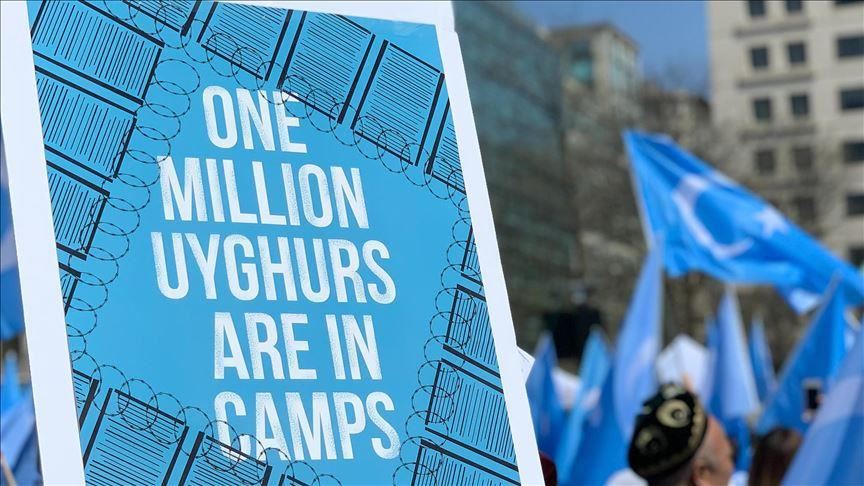The Australian government should strengthen legislation to suspend the import of goods made with forced labor, Human Rights Watch said last week in a submission to Australia’s Senate Foreign Affairs, Defence and Trade Legislation Committee. Australia needs to adopt urgent measures to address China’s alleged use of forced labor of Uyghur and other Muslim minorities from the Xinjiang region.
“There are credible complaints of forced labor of Uyghur and other Muslim minorities from Xinjiang supported by accounts from former detainees, satellite imagery, and leaked Chinese government documents,” said Elaine Pearson, Australia director at Human Rights Watch. “Australia should join other countries to authorize the suspension of imported goods made with forced labor from Xinjiang and elsewhere.”
The parliamentary committee is examining the Customs Amendment (Banning Goods Produced By Uyghur Forced Labour) Bill 2020, proposed by Senator Rex Patrick. The Australian government should designate Xinjiang a region where forced labor risks are high, and introduce a presumption of forced labor in cases of imports of finished goods from Xinjiang or imports of goods made with inputs from Xinjiang, Human Rights Watch said.
Human Rights Watch, a member of the Coalition to End Forced Labor in the Uyghur Region, also urged the Department of Foreign Affairs and Trade to convene discussions with Australian businesses and nongovernmental organizations to raise awareness about the risks of doing business in Xinjiang and encourage companies to join the “End Uyghur Forced Labour Call to Action.”
Recently, the United States strengthened its import control measures, banning all cotton and tomato products from Xinjiang, since there is a high risk that these products are made with forced labor. Pending US legislation would introduce a rebuttable presumption requiring importers to prove that any goods imported from that region come from supply chains free of forced labor. In January 2021, the United Kingdom and Canada made coordinated announcements to help prevent their respective businesses from being complicit in, or profiting from, human rights violations in the Xinjiang region.
Human Rights Watch also said that Australia should overhaul the Modern Slavery Act 2018, supplementing or significantly amending it to introduce a broad sweep of measures, similar to proposals that Human Rights Watch and other rights groups are advocating in the European Union. Australia currently does not make it mandatory for businesses operating in the country to undertake human rights and environmental due diligence in their own operations and their global value chains.
“Australia’s Modern Slavery Act falls short in protecting basic rights,” Pearson said. “The Morrison government needs to overhaul it and ensure that businesses operating in Australia are complying with human rights and environmental standards in their own operations and in their global value chains.”
